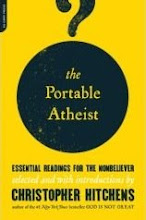In a religious context, 'faith' and 'truth' are almost synonyms. And faith is automatically good. If an idea is considered truth in your religion, and you don't have faith in it, that's a reflection on your failure as a faith-holder rather than the idea's failure to be true. If you don't have enough faith on a given subject, you should work harder at it.
In the sciences, that kind of faith is not a virtue; it's a personal failing. Imagine a bridge engineer being invited to "have more faith" that a design has enough steel in it to keep his bridge from collapsing. His faith has nothing to do with it; either the bridge stays up, or it falls down. Faith in the sense of 'letting yourself be persuaded without adequate evidence' is morally wrong in that context. If the bridge engineer does so, and people die in the collapse, he's murdered them.
Scientists, or the good ones, feel the same way about their theories that good engineers feel about their bridges. It's their job to make them right, not to convince themselves for their own emotional comfort that they're already right, pretty much, close enough.
If a scientist says "I have faith this theory is true," he doesn't or shouldn't mean it in the religious sense of "I commit myself to this no matter what the evidence may say, forever. Don't try to change my mind, here I stand."
Instead, he means or ought to mean "I've tested this theory, and I've seen the results of other people's tests, and I'm as sure as I can possibly get on the available evidence that this theory is as close to right as we can get. Unless something else really radical turns up. Keep me posted."
I think it is absolutely phenomenal. One of my favorite posts on any forum I've read online.
.jpg)



No comments:
Post a Comment